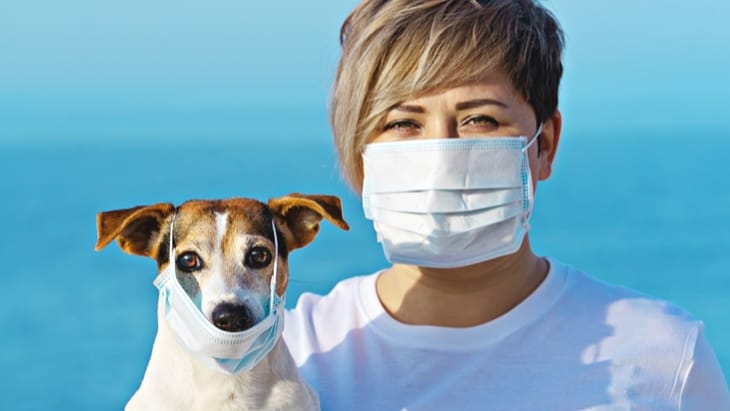The Novel Coronavirus (covid 19) is a highly virulent virus. It has been originally identified in Wuhan in the Hubei province of China in January 2020. The virus is highly contagious and has been swift to spread across much of the World. To avoid the spread of this disease, the UK Government has stated that people with COVID-19 symptoms will have to self-isolate for 7 days.
Self-isolation is a necessary measure that raises many questions as to how to behave. Such as how to look after our pets during this period. Can you have contact with them? snuggle them? Take them out for a walk? Read on to find answers to these questions and many others!
- Limit contact with pets & animals. You should restrict contact with pets and other animals while you are sick with Coronavirus COVID-19, just like you would around other people. Although there have not been reports of pets or other animals contracting COVID-19, it is still recommended that people suffering from Coronavirus COVID-19 limit contact with animals until more information is known about the virus.
- When possible, have another member of your household care for your animals while you are sick. If you are ill with COVID-19, avoid contact with your pet. Contact includes petting, snuggling, being kissed or licked, and sharing food. You might have to care for your pet or be around animals while you are sick. In that case, wash your hands before and after you interact with pets. Always wear a facemask. See COVID-19 and Animals for more information.
- Walking your dog. Grant Shapps, the Transport Secretary, stated that older people who will have to self-isolate, will still be able to walk their dogs, even if with a certain degree of prudence. Mr. Shapps said “it is the case that people will be able to go out and walk your dog. It’s about being sensible without going and mixing in crowds.” It is still recommendable to avoid long walks and the most overcrowded hours. You are aiming to exercise yourself and your dog without coming closer than 2 metres with another individual. Counter to this, if you are self-isolating because you have COVID-19 symptoms, you must not take your dog out for a walk. Even if you were to plan to stay close to your residence and go out early in the morning or late in the evening, this is not advised. Ask friends, relatives or arrange for a dog walker to take your dog out. Furthermore, remember that you need to have as little contact as possible with whoever is caring for your pet. Ensure anyone visiting knows you have Coronavirus. Ensure they stay well away from you and wash their hands thoroughly after looking after your pet.
If your pet becomes unwell. do not take them to the vet. Counter to this, always call the practise for instructions. Moreover, scrupulously follow the vet’s instruction. You may need to arrange someone else to take your pet for treatment.
- What is a seizure? - 13th March 2025
- Febrile Convulsions and Seizures in Children - 13th March 2025
- Why women are less likely to receive CPR or survive cardiac arrest - 6th March 2025


